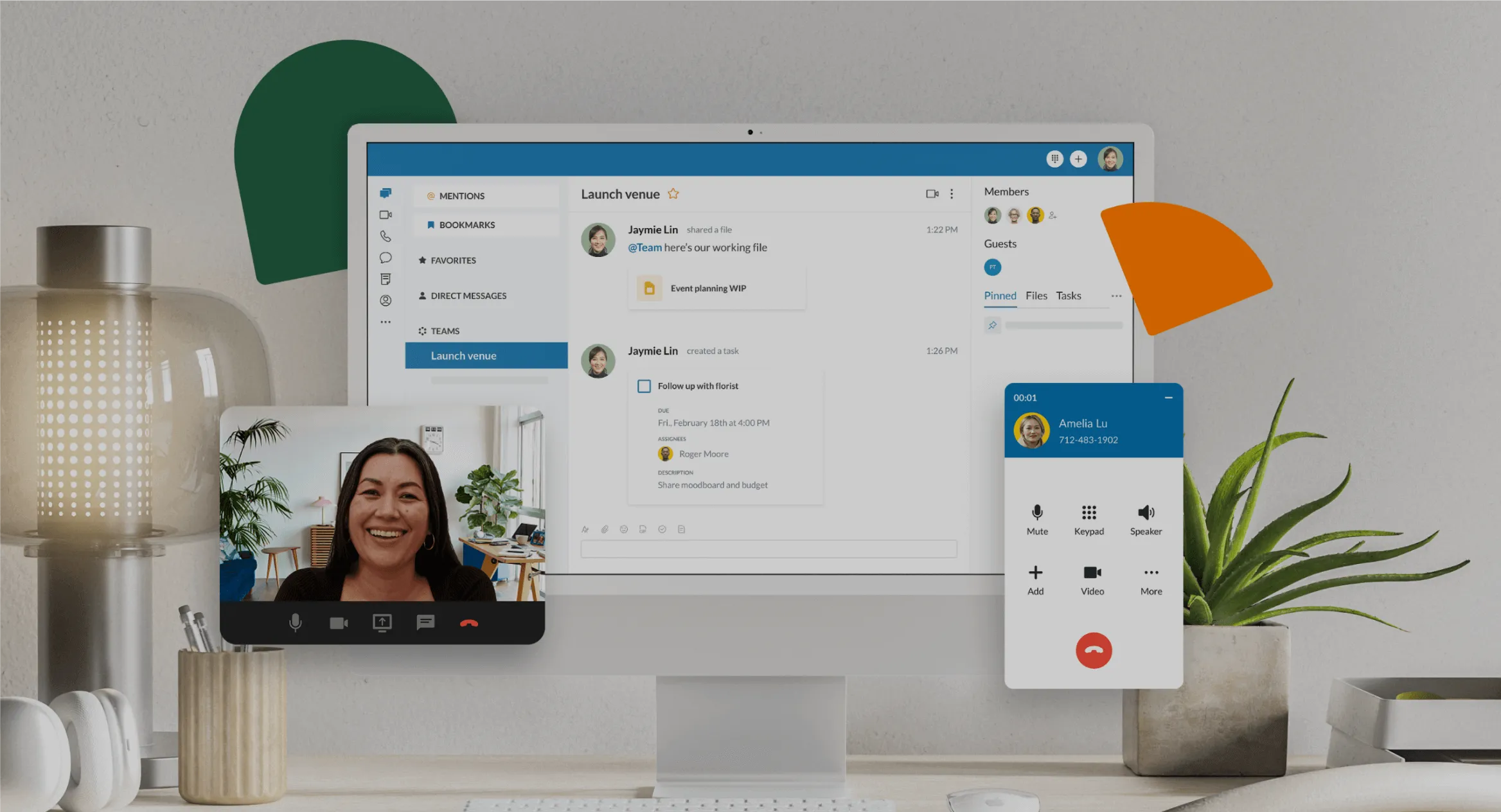What is a virtual or hosted PBX phone system?
Benefits & free demo


With the RingCentral mobile app, employees can call, fax, SMS text, enable call recording, and host conference calls and online meetings using their smartphones or tablets. And with mobile data available whenever necessary, they can keep working if there’s a power outage, inclement weather, or a major disaster, delivering excellent business continuity.
With RingCentral's business PBX solution, you don't have to deal with hardware upgrades and upkeep, a burden that’s particularly tough for startups or small businesses.
You can eliminate on-premise PBX hardware to reduce the initial investment and remove the otherwise-inevitable maintenance costs that can easily add up as the months go by.
Choosing RingCentral as your hosted PBX provider makes it possible to connect all your business communications through one versatile platform that can be accessed anywhere through desktops, laptops, smartphones, and other IoT devices.
That puts you in the position to easily accommodate staff anywhere in the world without sacrificing quality or reliability.
Unlike the complicated PBX setups of old, RingEX is simple to use and easy to manage. Its accessible design empowers users to take advantage of powerful PBX features (including call handling, voicemail, greetings, and much more) without needing IT staff to assist them.
The result? Improved morale, raised productivity, and better caller experiences.
Do your teams want to work remotely? Traditional PBX systems tie your staff to their desk phones on-site at your premises. That’s the only place your setup works. A hosted PBX or VoIP phone system works wherever your staff have an internet connection. They can flick on their mobile phones and access all the calling features they need.
Would it be more efficient to have one solution for all channels? Many businesses use multiple communication channels—SMS, instant messaging, video conferencing, and more. A VoIP service can unite these channels on one platform, as a unified communications system. That can bring both improvements in efficiency and cost savings.
Do you want your communications to outlive traditional telephone networks? In many countries, the traditional public switched telephone network (PSTN) is being phased out. SIP trunking could help you get some extra use out of traditional infrastructure, but—ultimately—hosted systems are the most future-proof options.






